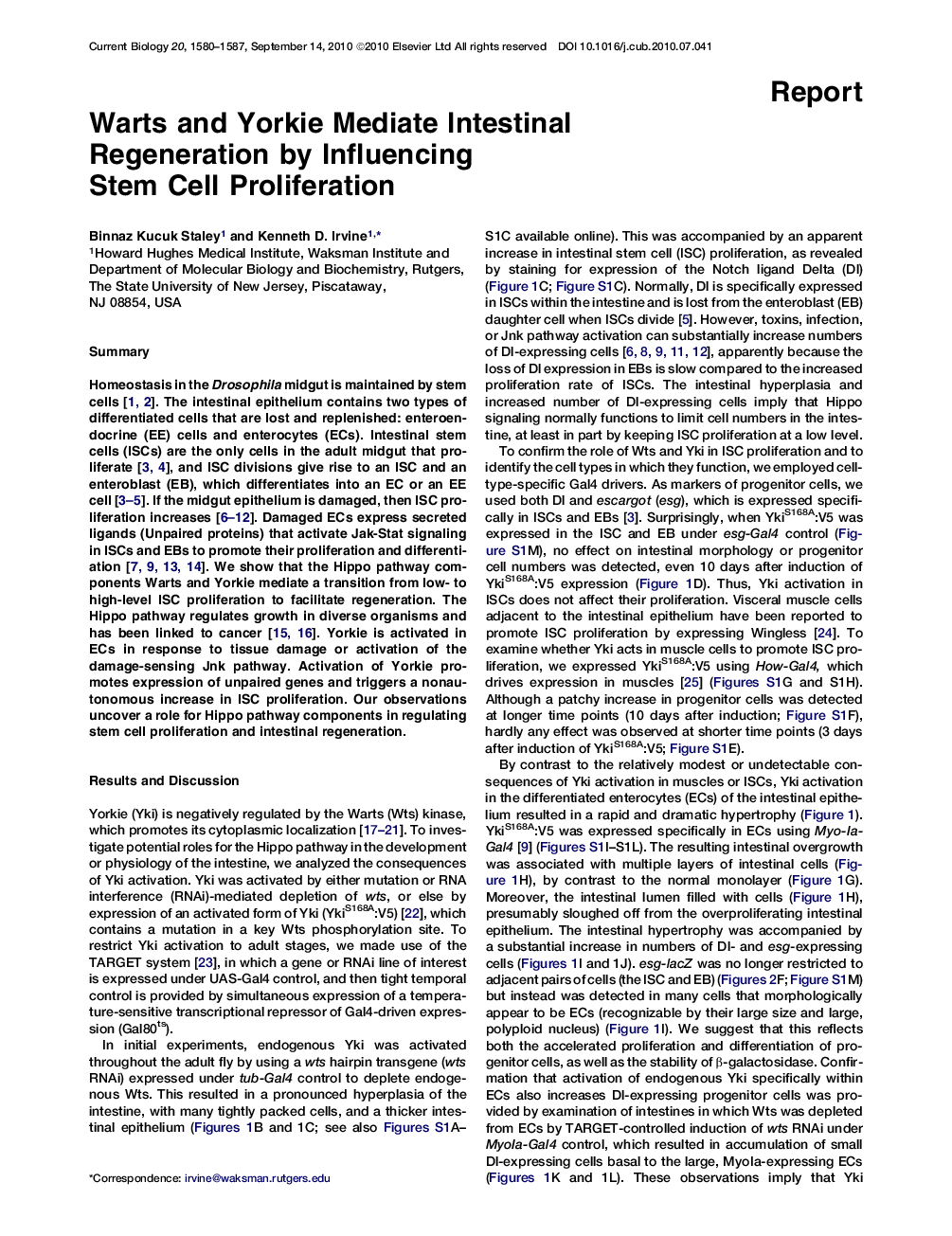| Article ID | Journal | Published Year | Pages | File Type |
|---|---|---|---|---|
| 2043437 | Current Biology | 2010 | 8 Pages |
SummaryHomeostasis in the Drosophila midgut is maintained by stem cells [ 1 and 2]. The intestinal epithelium contains two types of differentiated cells that are lost and replenished: enteroendocrine (EE) cells and enterocytes (ECs). Intestinal stem cells (ISCs) are the only cells in the adult midgut that proliferate [ 3 and 4], and ISC divisions give rise to an ISC and an enteroblast (EB), which differentiates into an EC or an EE cell [ 3, 4 and 5]. If the midgut epithelium is damaged, then ISC proliferation increases [ 6, 7, 8, 9, 10, 11 and 12]. Damaged ECs express secreted ligands (Unpaired proteins) that activate Jak-Stat signaling in ISCs and EBs to promote their proliferation and differentiation [ 7, 9, 13 and 14]. We show that the Hippo pathway components Warts and Yorkie mediate a transition from low- to high-level ISC proliferation to facilitate regeneration. The Hippo pathway regulates growth in diverse organisms and has been linked to cancer [ 15 and 16]. Yorkie is activated in ECs in response to tissue damage or activation of the damage-sensing Jnk pathway. Activation of Yorkie promotes expression of unpaired genes and triggers a nonautonomous increase in ISC proliferation. Our observations uncover a role for Hippo pathway components in regulating stem cell proliferation and intestinal regeneration.
Graphical AbstractFigure optionsDownload full-size imageDownload high-quality image (89 K)Download as PowerPoint slideHighlights► Warts and Yorkie influence stem cell proliferation in the Drosophila intestine ► Warts and Yorkie control the expression of cytokines for the Jak-Stat pathway ► Yorkie is activated by tissue damage and the damage-sensing Jnk pathway ► Warts and Yorkie link a stem cell-mediated regenerative response to tissue damage
